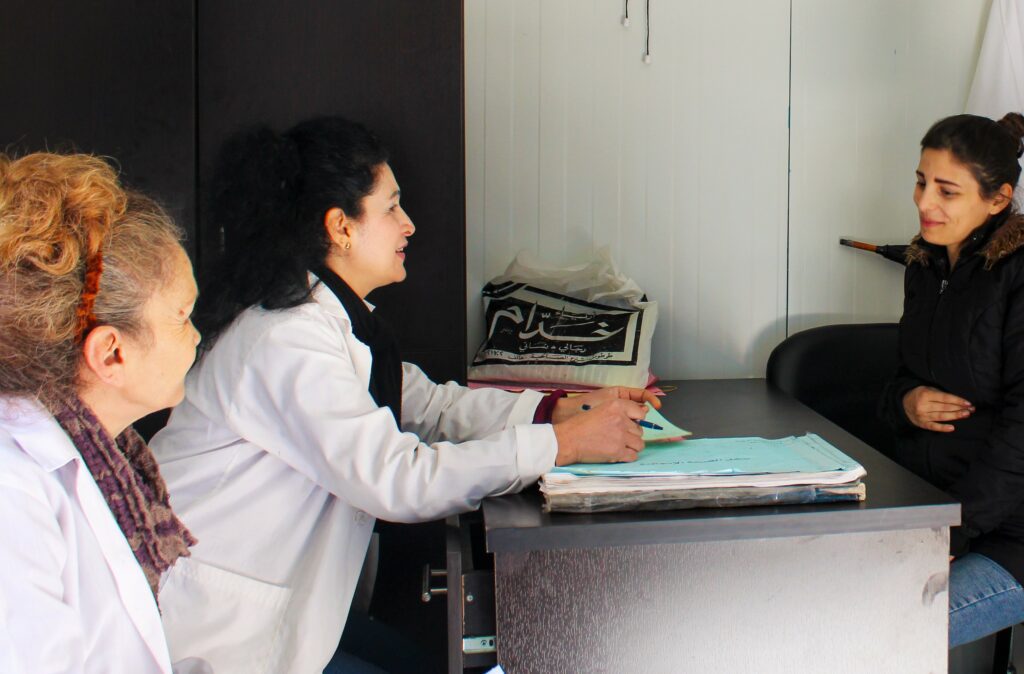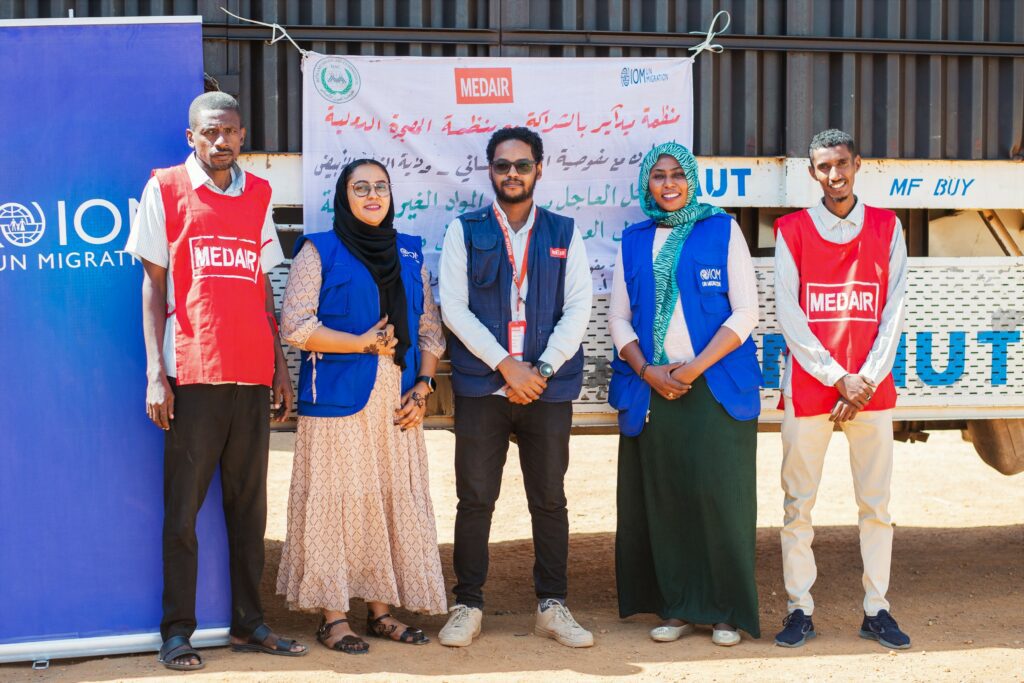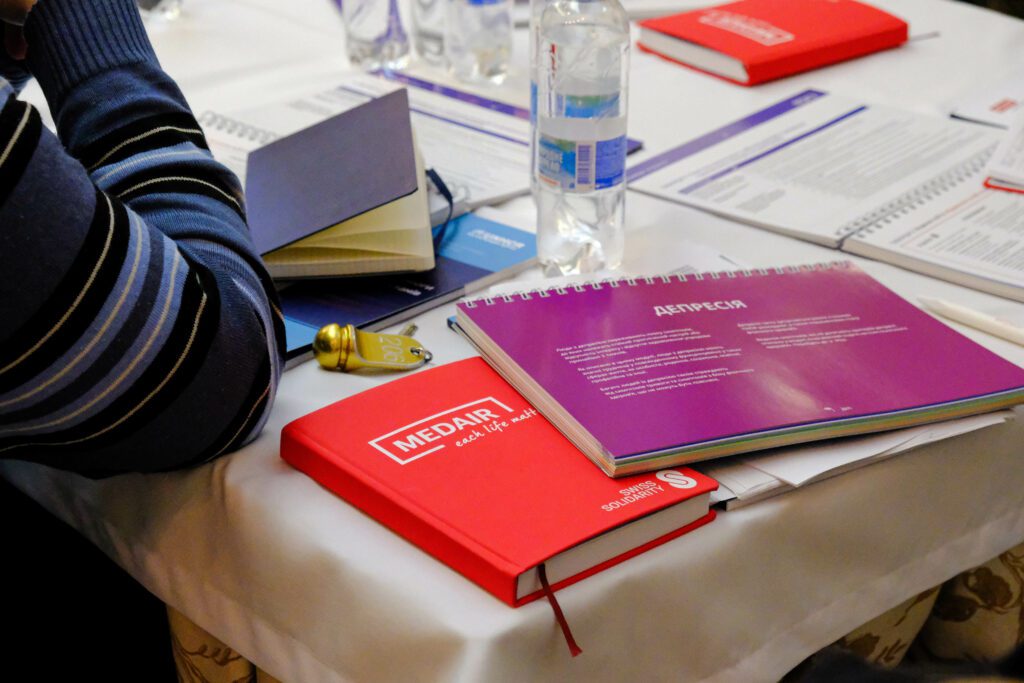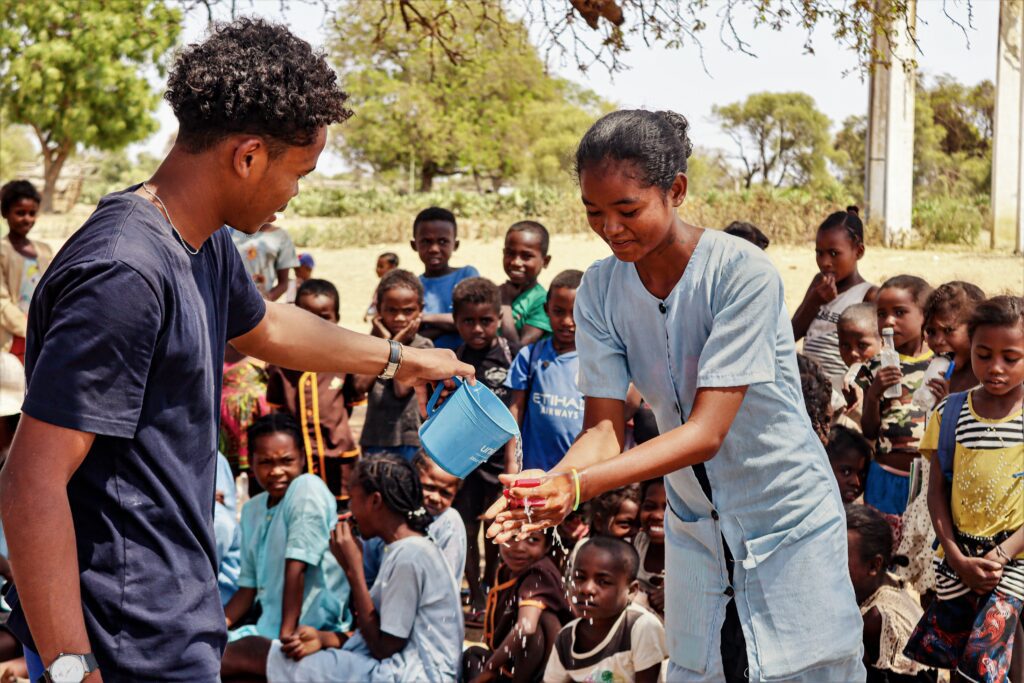Since the end of August, conflict has resurged in several locations along the eastern bank of the Euphrates River, affecting over 6,500 families, predominantly women, children, and the elderly. These families have been displaced to the western side of the Euphrates River, becoming internally displaced persons (IDPs). Additionally, the affected population is grappling with shortages of water, food, infant formula, medicine, and electricity, while private hospitals are struggling due to severe shortages of medical personnel, medications, and essential trauma supplies.
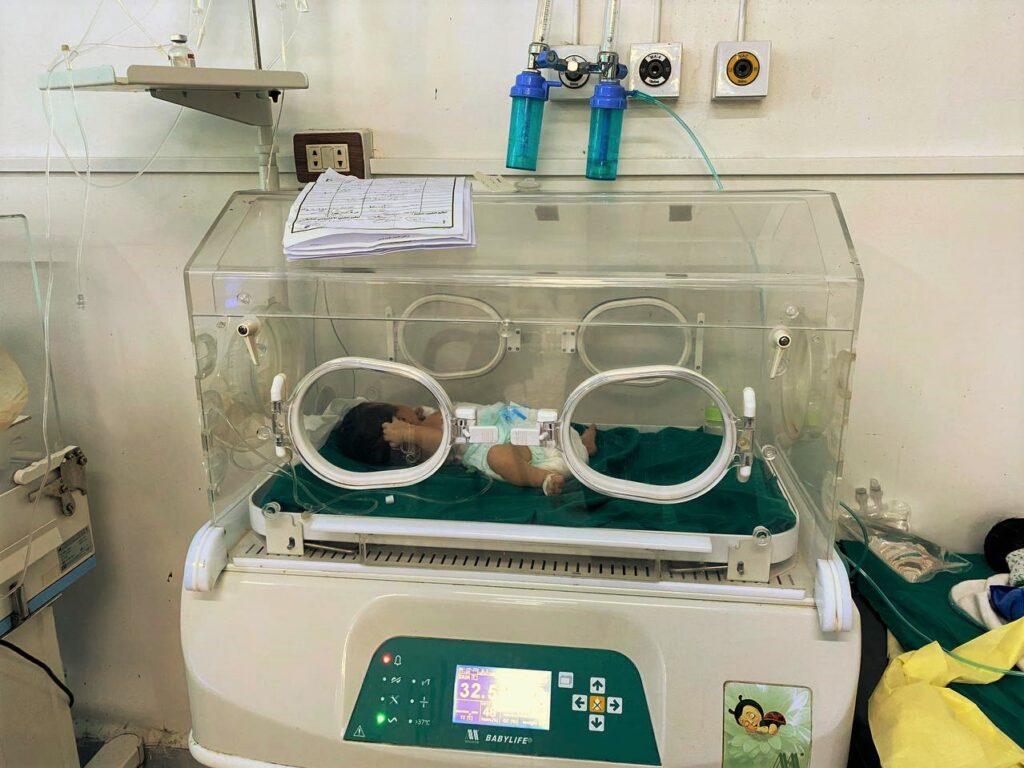
A newborn baby is placed in an incubator in Deir ez Zor hospital. Fortunately, there was an available incubator on that day, as it was crucial for his health condition. Deir ez Zor Hospital faces a shortage of critical medical equipment, with the existing ones being either outdated or in limited supply.” ©Medair/Lubna Zarzour
In Deir ez Zor, the largest city in eastern Syria, there is just one operational hospital serving approximately 1.5 million people, but it faces extensive damage, along with a critical shortage of doctors and key medical equipment.
During Medair’s visits to various healthcare facilities, the team noted a concerning situation: “While touring the only functional hospital in Deir ez Zor, we saw individuals in urgent need of medical attention. They anxiously awaited their turn for the only functional operating room, so that a doctor could perform their surgery. Their loved ones prayed that they would get medical attention before their health further deteriorated. Unfortunately, in some cases, lives were lost.”
The team added: “Meanwhile, in another corridor, we could hear the fragile cries of premature newborns awaiting an available incubator. Looking at the vacant expressions on the faces of these people brought to light the profound impact that the situation was having on their mental health. The traumatic experience of displacement, loss of family members, and livelihoods resulted in a significant level of psychological distress and trauma.”
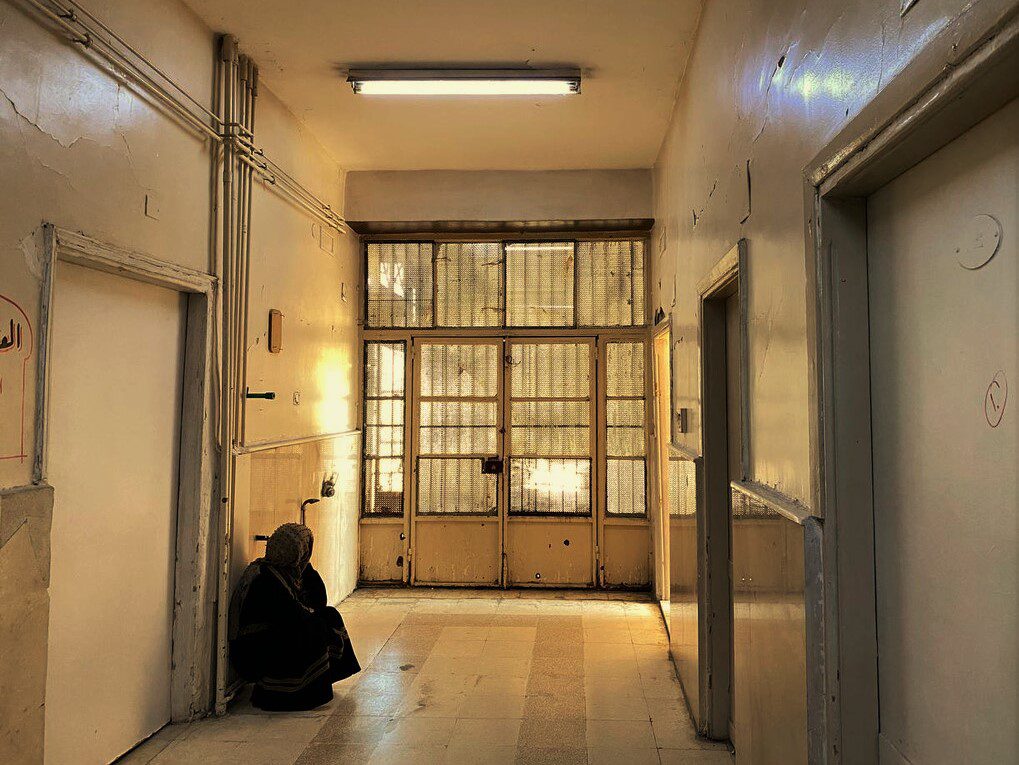
One corridor of Deir ez Zor Hospital where individuals wait anxiously, praying for their loved ones to receive essential medical attention before their health further declines. Deir ez Zor Hospital was heavily damaged during the Syrian crisis and has only one functioning operating room. ©Medair/Lubna Zarzour
Twelve years ago, before the onset of the Syrian crisis, Deir ez Zor had three public hospitals providing free services to residents. However, two of these hospitals were destroyed during the crisis, and the third was partially damaged, and now lacking crucial medical equipment and staff.
Dr. Batoul, a hematologist at Deir ez Zor Hospital, expressed her concerns to Dr. Jamal from the Medair health team, noting: “Some of the hospital’s aging equipment, such as pressure gauges and sugar meters, occasionally provides inaccurate information.”
Dr. Hamza, a pediatrician at the hospital, added: “We’re facing a shortage of incubators, which has forced us to place two or three babies in a single incubator at times. Sometimes, we have to keep babies waiting until there’s space, resulting in tragic instances where some babies don’t survive.”
The team, led by Dr. Jamal, the Medair health officer, journeyed eastward from Deir ez Zor where they encountered a damaged structure on the western bank of the Euphrates River. This building once functioned as a primary healthcare center for the Al Ashara area. However, presently, the center offers only routine vaccinations for children.
Mr. Barakat, the DoH staff member guiding the Medair team explained: “Recruiting doctors for the public health center is a challenge. Many doctors are reluctant to join due to the low salary, which is approximately 12 dollars per month. Furthermore, the center lacks essential equipment.”
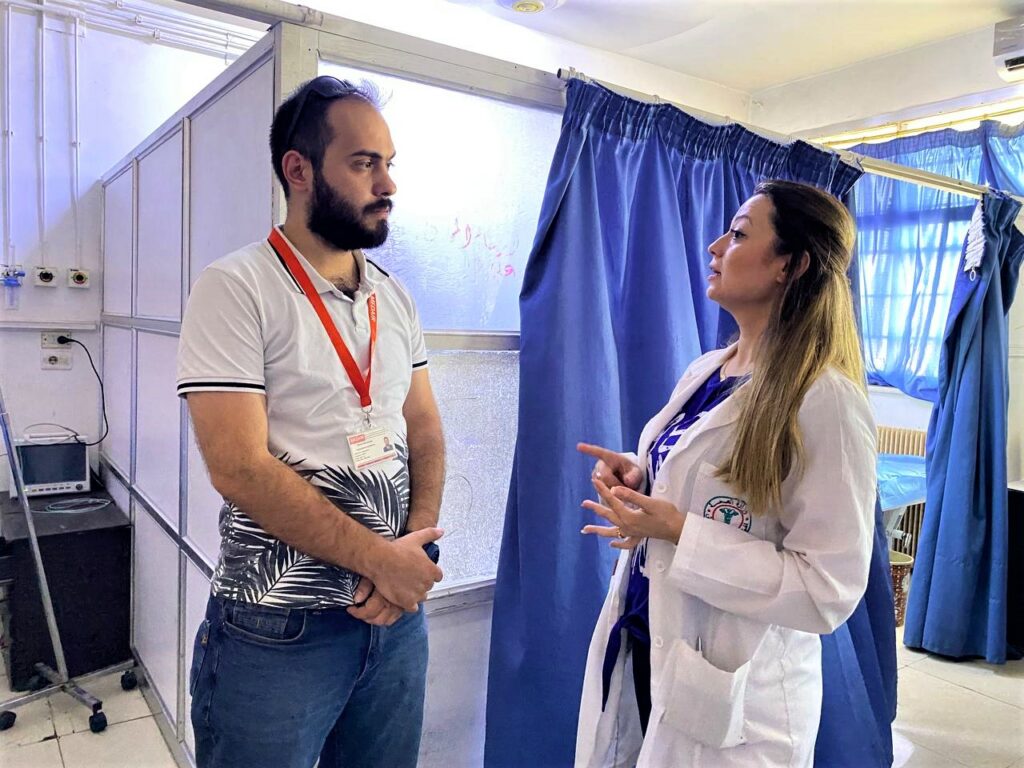
“After the other two hospitals became non-operational during the crisis, Deir ez Zor Hospital now serves the purpose of three hospitals. It serves 1.5 million people but, unfortunately, has a limited number of doctors and lacks several crucial medical equipment such as ventilators, echocardiograms, and pressure gauges. Due to the old age of some equipment, like pressure gauges and sugar meters, they occasionally provide inaccurate information.” Dr Batoul, a hematology specialist at the Hospital, expressed her concern to Dr Jamal from the Medair health team. ©Medair/Lubna Zarzour
Dr. Jamal explained: “Unfortunately, in emergencies requiring immediate medical attention, the residents of Al Ashara area, which is about 35,000 people, are forced to travel to the nearest hospital, which is about 19 kilometers away. Since public transportation is unavailable to Al Mayadeen and an ambulance would take hours to arrive, families often have to rent a car to to reach the hospital. This places a significant financial burden on already vulnerable and low-income individuals.”
Returning to their car, the Medair team proceeded to Al Sayala area, located 122 km from Deir ez Zor. There, they encountered a similar deteriorating building that had previously served as a primary health center.
Mr. Hasan, who was overseeing some minor rehabilitation efforts, described the current situation, saying: “With the help of the residents of the area, we’ve managed to repair the bathrooms and rooms at the center. However, we still face a shortage of equipment, furniture, and staff.”
Meeting Yusra, a mother of a 9-year-old child, she shared: “My child and my neighbor’s son were diagnosed with cholera last week. The doctor informed us that it’s because we rely on unsafe water sources from the Euphrates River, especially during the scorching summer months when temperatures exceed 40°C. We have no alternative water sources. The local water station suffered significant damage during the Syrian conflict, leaving all the residents here without access to safe drinking water.”
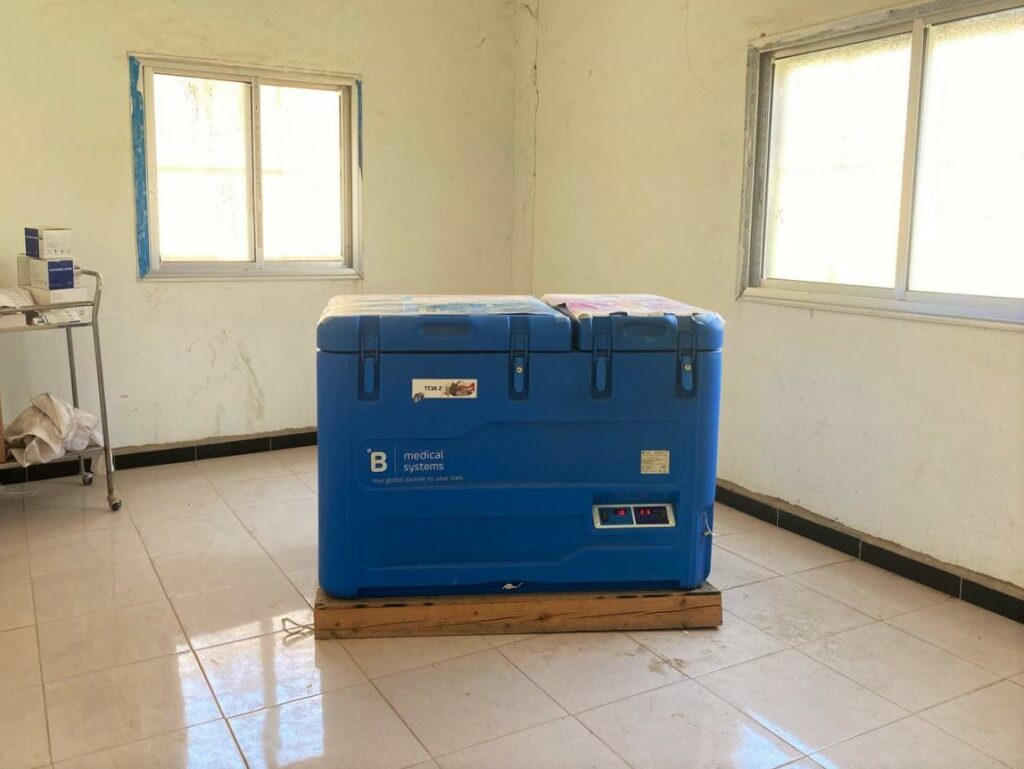
The freezer where the vaccination is stored in Al Ashara primary health centre in the rural Deir ez Zor governorate. Regular vaccine for children is the only service that the PHC currently provides due to a shortage of equipment and staff. ©Medair/Lubna Zarzour
Medair is actively involved in supporting the healthcare system in Deir ez Zor. With funding from the Swiss Agency for Development and Cooperation (SDC) and the European Commission Humanitarian Aid and Civil Protection (ECHO), Medair has rehabilitated a maternity center in the Al Rishdeh area, procured essential medical equipment and supplied 40 oxygen cylinders to the oxygen generating station at Deir ez Zor Hospital, benefitting approximately 30,000 individuals.
In another project, which ran from November 2022 until the end of July 2023 and was backed by the Syrian Humanitarian Fund (SHF), the Medair team distributed 1,080 cholera kits to families throughout the city. Each kit contained 40 aqua tabs, a jerrycan and bars of soap, helping mitigate the spread of cholera in Deir ez Zor.
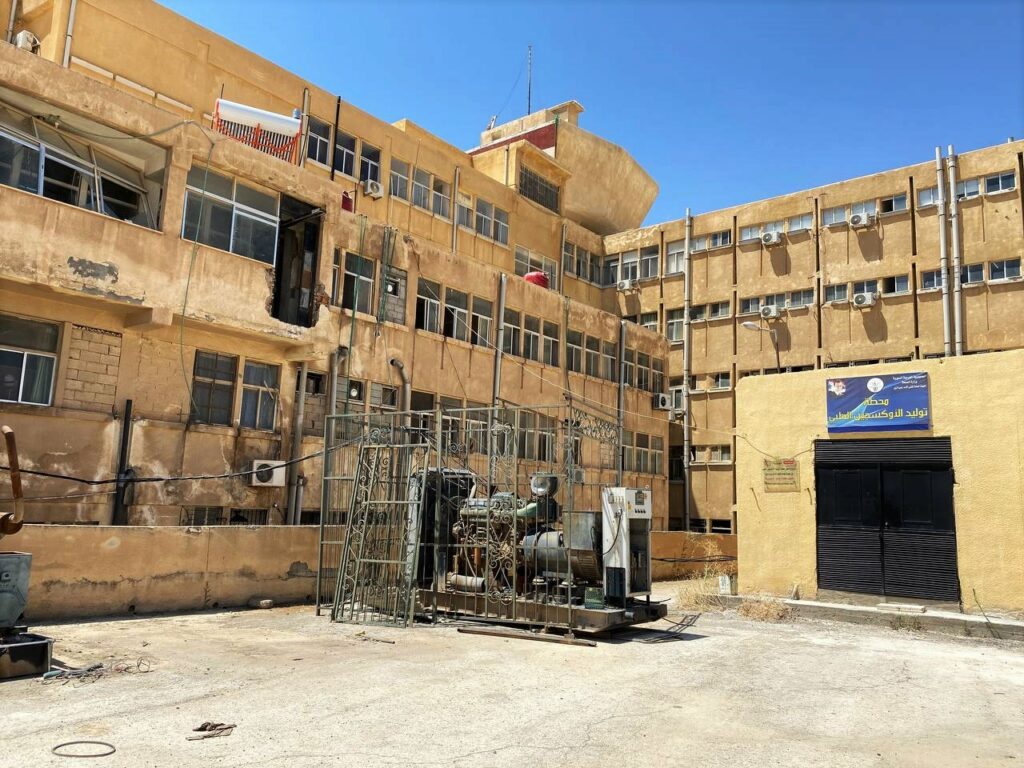
Medical Oxygen generator station in Deir ez Zor hospital. Medair provided 40 cylinders to the oxygen generating station in Deir ez Zor Hospital, which served approximately 30,000 beneficiaries. ©Medair/Lubna Zarzour
Urgent support is greatly needed for the healthcare system in Deir ez Zor, which could save numerous lives and facilitate access to essential medical treatment and medication.
Increased support is much needed for the healthcare system in Deir ez Zor. It could save the lives of many people, and it would make it possible to access basic needs, such as medical treatment and medication.
Medair’s work in Syria is made possible by the Swiss Agency for Development and Cooperation (SDC) and the European Commission Humanitarian Aid and Civil Protection (ECHO), the Syrian Humanitarian Fund (SHF) and generous private donors like you.
This content was produced with resources gathered by Medair field and headquarters staff. The views expressed herein are those solely of Medair and should not be taken, in any way, to reflect the official opinion of any other organization.


